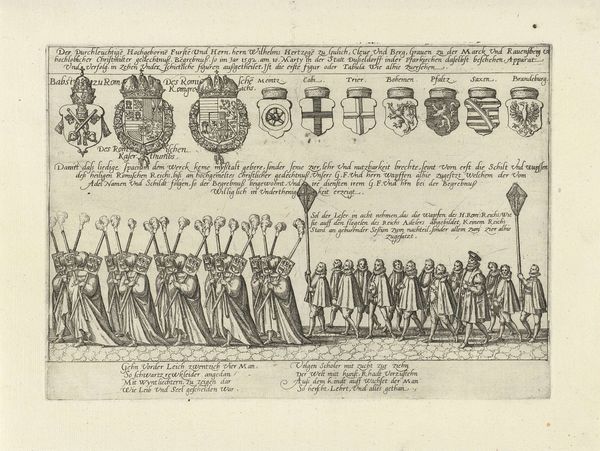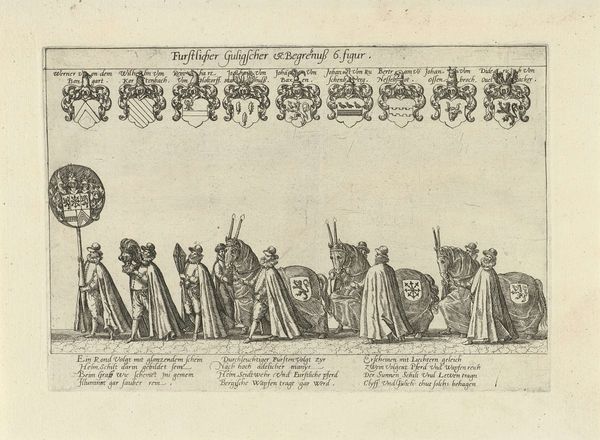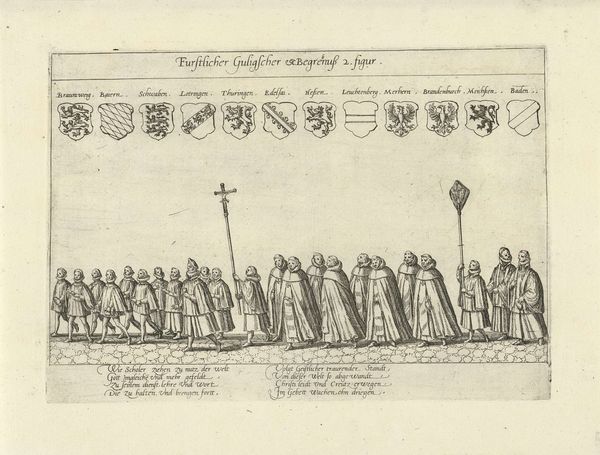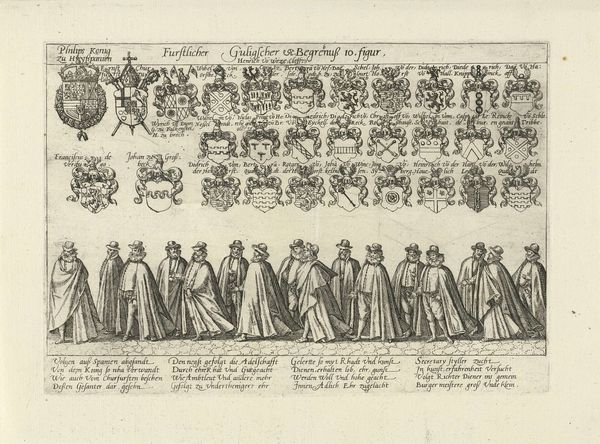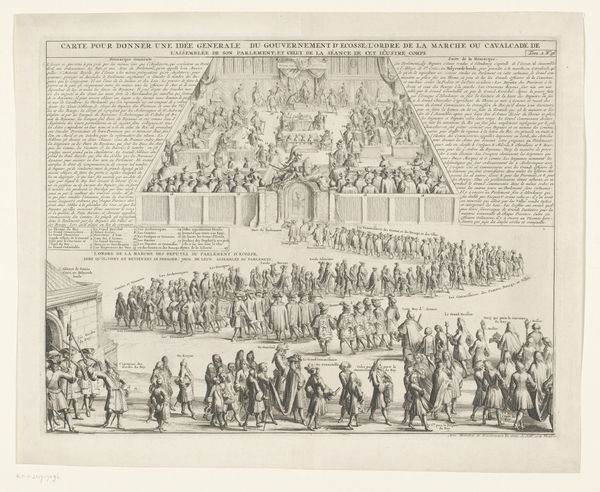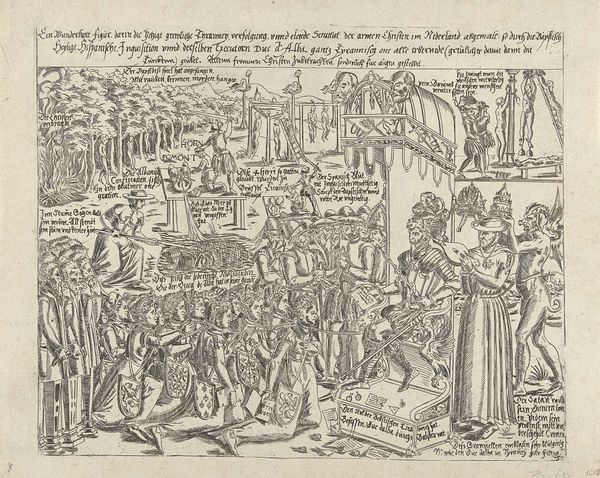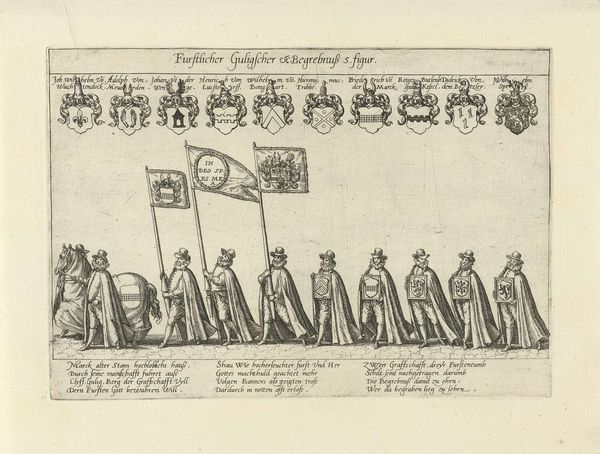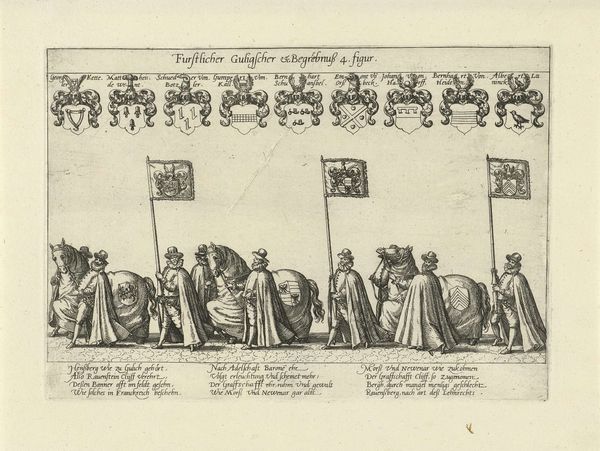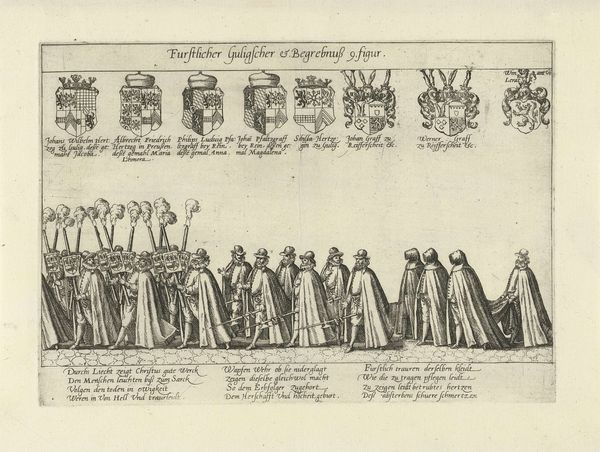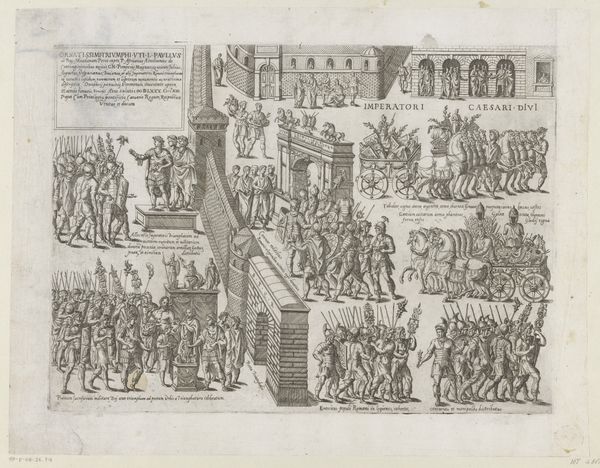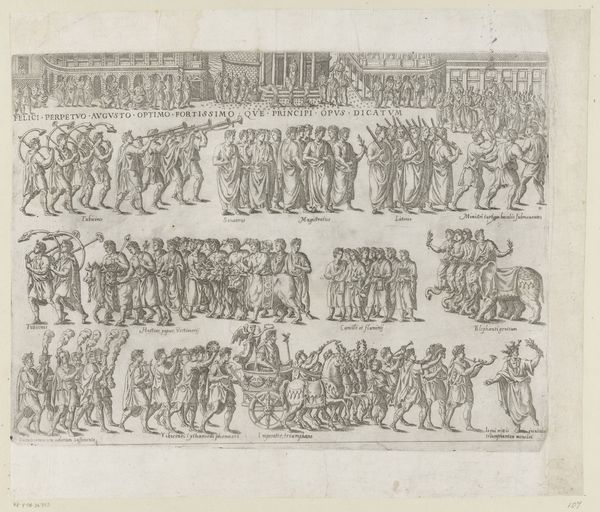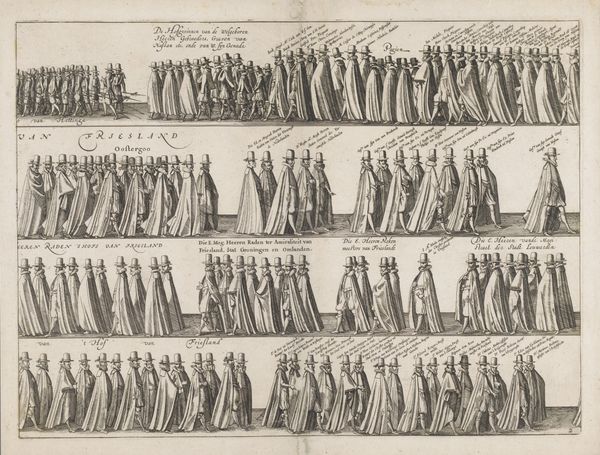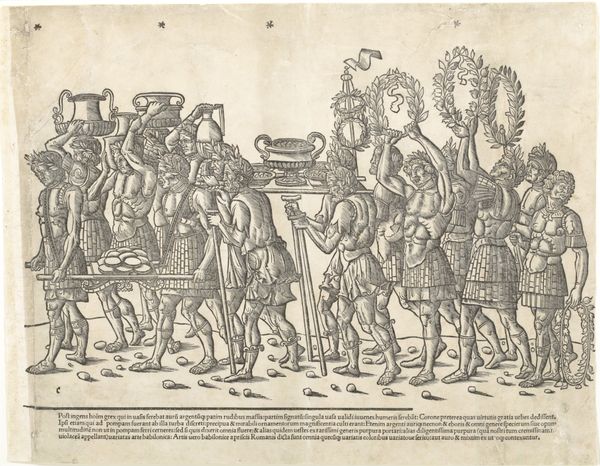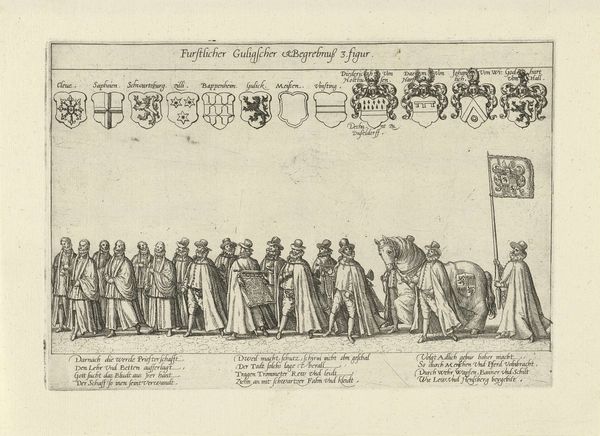
print, engraving
#
medieval
# print
#
figuration
#
form
#
line
#
history-painting
#
engraving
Dimensions: height 180 mm, width 265 mm
Copyright: Rijks Museum: Open Domain
This engraving, depicting a funeral procession with torchbearers around the coffin, was created around 1570-1590 by Frans Hogenberg. In this period, images were not only aesthetic objects but also reflections of societal hierarchies, political alliances, and personal identities. The procession serves as a visual articulation of power, status, and memory. The elaborate display, with its torchbearers and symbolic emblems, reflects the identity of the deceased. Note the heraldic shields displayed above the procession which act as markers of lineage and nobility, underscoring the importance of ancestry. During the 16th century, class was intrinsically linked to how one lived and how one was memorialized. "Here to see how nobleness / cannot save from untimely suffering,” says the inscription at the bottom, reminding us that death is an equalizer, irrespective of earthly status. Yet, the grand spectacle of the funeral challenges this, highlighting the distinctions that persist even in death. How do these historical expressions of grief and remembrance compare to contemporary rituals around death and mourning?
Comments
No comments
Be the first to comment and join the conversation on the ultimate creative platform.
